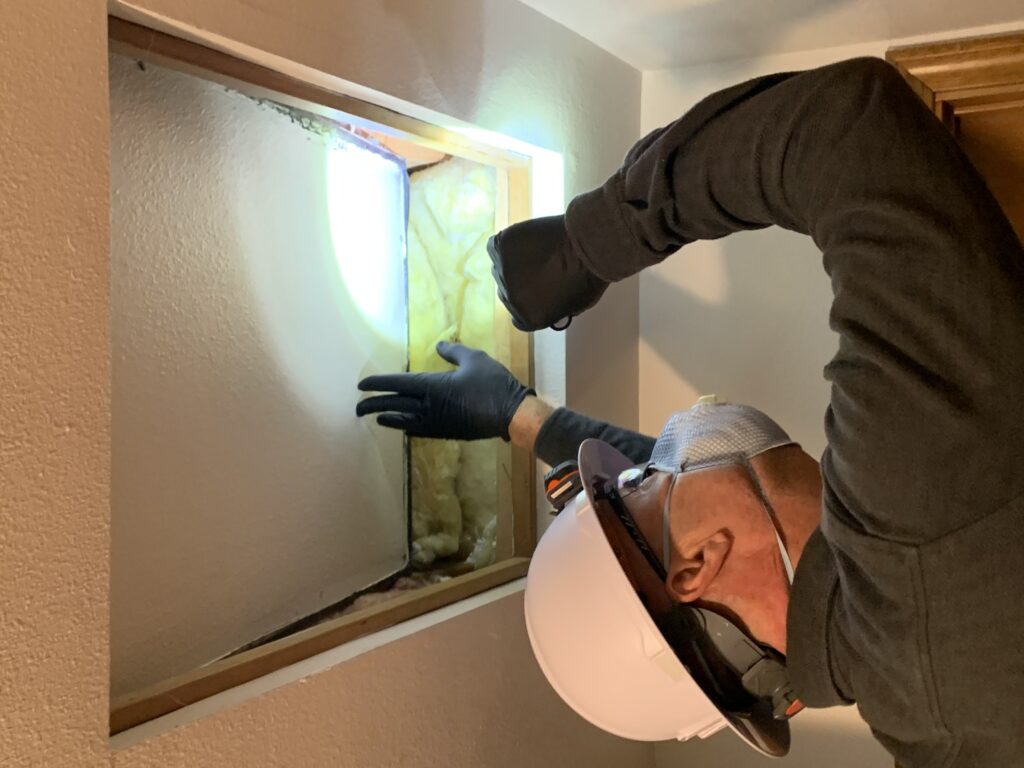A certified professional inspector for homes is a qualified individual who has been certified by some kind of professional organization to conduct home inspections. Home inspections are important because they can identify potential problems with the property that the buyer may not be able to see. In this article, we will discuss who is qualified to be a certified professional inspector, what they look for during a home inspection, and what qualities you should look for in a home inspector.
Certified Professional Inspector for Homes: What to Look For

What Is a Certified Professional Inspector?
A certified professional home inspector is one that must be licensed in their state of practice (with a current and unexpired license) to carefully inspect homes for signs of serious or impending damage. This can include everything from foundation inspections to roof inspections and everything in between.
Who Is Qualified to Be a Certified Professional Home Inspector
A certified professional inspector must be fully qualified in the eyes of their state—whether they are a current general contractor with an intimate knowledge of construction or have taken a course on home inspections and passed the state exam. Sometimes specialized subcontractors can come and consult on their area of expertise, such as electricians or roofing experts—however most home inspections are carried out by general contractors with a history of construction work.
What Do Home Inspectors Look For?
Often times before buying a house, a prospective buyer will request that the house be inspected for any existing damage. In fact, this is often a requirement depending on whether or not they are going through a lender. This important step helps to determine the value of the home as well as any potential repairs that need to be done—which can play crucial roles in determining how the sale is closed. So, what exactly do home inspectors look for?
Certified professional inspectors will look at both the interior and the exterior aspects of your house, examining everything from rainfall drainage to electrical wiring. Here are the top 10 things most qualified home inspectors are looking for when they check out a house of interest:
- Foundation, for cracks or signs of structural damage or decay
- Floors, for unevenness and sloping, cracks, and more
- Walls, for cracks and water damage
- Ceilings, for cracks, water damage, and signs of strain
- Attic and insulation, including proper ventilation systems
- Doors and windows, for sticking or signs of decay
- Basement, especially for cracks and water damage
- Roof and water drainage, for damaged shingles, roof valleys, or excessive moss or lichen growth as well as proper rain diversion
- Plumbing and electrical wiring, to make sure everything is safe and up to code
- Heating and cooling systems within the house (climate control), for leaks, inefficiencies, or other problems
A house inspection can be your first line of defense against pathogens you never knew were in your home, such as mold, lead paint or pipes, termites, or asbestos.

How Long Do House Inspections Take?
The answer to this question often depends on the size of the house and the services requested by the inspector, though a typical home inspection takes two to six hours. After a home inspector thoroughly examines your property, they will send a written report within twenty-four hours of the physical inspection.
What to Look for in a Home Inspector
Now that you know what a certified professional inspector comes to look for when you call them to your home, how do you know when you’ve landed the right expert for the job? In the following passage, we’ve dictated the top five things to look for in a professional home inspector:
- Expertise and experience: How many years has your home inspector been practicing their craft? Alternatively, do they have a background in general contracting and experience with construction or architecture? What makes them a credible resource for your home inspection needs? Are they currently licensed in your state? Did they go to school for house inspections and pass the state exam? These are all questions to ask before settling on a house inspector to hire for your needs.
- Transparency about methods and pricing: Before choosing the right home inspector for your property, it’s important to consider how pleasant it will be to work with them. Do they give you an upfront estimate of how much it is likely to cost? Will they walk you through their process and talk you through what they’ve found? The more communicative a house inspector can be throughout the process, the more likely you will be to take effective action about what they find.
- Familiar with local area hazards or common construction problems: Is the house inspector from a large corporate chain, or are they from a local company? Your local inspectors are more likely to know of common property damage problems in your area, from poor city plumbing to soil erosion patterns. This gives you the most advanced look at potential danger areas for your home and insures you get the most out of your inspection.
- Referrals and references: If a certified professional inspector is only as good as the company he or she keeps, what do their references have to say about them? Are they likely to provide a thorough service and answer all the homeowner’s questions as they arise? What do previous clients have to say about their services? These factors can weigh heavily in the decision of whether or not to work with an inspector—no matter their qualifications or experience.
- Connections within the contracting community for repairs: It’s one thing to alert you to the presence of the problem, but it’s another to set you on your way to getting damage or decay repaired. Is your house inspector well-connected within the contracting community? If your shingles are damaged, can they provide you with the card of a local roofing expert? The last thing you want is to be left high and dry at the end of an inspection with few resources to throw at any problems your inspector may detect.
Certified Professional Inspector Near Me
Even if you’re not looking to buy or sell a home, you can still benefit from regular home inspections. While most people wait to have their home inspected as part of the process of putting it on the market, responsible homeowners will have their homes inspected annually to ensure they remain a safe haven for their loved ones. For more on the importance of regular foundation inspections, check out our recent article on the topic!
However, you shouldn’t just settle for any old home inspector who happens to cross your radar. Trust the experts at Analytical Home Inspections to assess your home for damages and value appraisals. Call today for a consultation!
